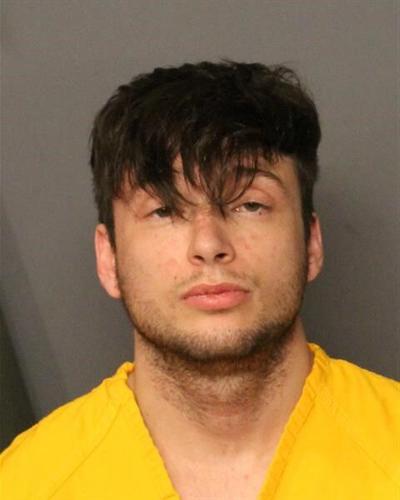16th Street Mall stabbing suspect appears in court for first time
Nearly two weeks after a string of stabbings shocked downtown Denver’s tourist district, the suspect appeared in district court for the first time Friday.
Elijah Caudill, 24, appeared cuffed, donning a gray jumpsuit provided by the jail and bangs covering his eyes.
Throughout the advisement hearing, which lasted around an hour, Caudill continued to look up to the corner of the room, squinting and speaking to no one.
Despite defense motions filed directly mentioning the suspect’s ongoing mental health issues, competency has not been raised by either the defense or prosecution.
But the suspect’s mental health and competency will likely remain a focal point of both the pretrial and, if he’s found competent, a trial involving two counts of first-degree murder, two counts of attempted murder, two counts of assault and four violent crime sentence enhancers.
Caudill was arrested on Jan. 12 in connection with the four stabbings on the 16th Street Mall that left two people dead and two others injured between Jan. 11 and 12.
The two slain victims included 71-year-old Celinda Levno and 34-year-old Nicholas Burkett. Two others were injured in the weekend stabbing attacks.
While Friday’s hearing was mostly set to discuss and schedule the preliminary hearing — where prosecutors present evidence to the judge to determine if there’s enough to proceed to trail — the meeting turned into fast-paced back-and-forth between attorneys on the nearly 20 motions filed by Colorado State public defender Ariana Burnette, the defense attorney appointed to Caudill.
The collections of motions looked to both suppress information about the pretrial proceedings from the media and bolster the security of evidence for the defense attorneys.
Most of the motions were filed Thursday evening or Friday morning.
In one motion, Burnette asked to preserve evidence around the entire area, especially Regional Transportation District (RTD) security footage and H.A.L.O. (high activity location observation) cameras in the area operated by the Denver Police Department.
The defense claimed to not have received any of the footage and that RTD deletes its footage after seven days. The H.A.L.O. footage is also deleted after 30 days, according to Burnette.
Both Denver District Judge Karen Brody and Senior Chief Deputy District Attorney Zach McCabe that the motion was “too broad,” with police already collecting evidence they deemed necessary for the investigation.
“There’s a number of businesses along (16th Street Mall). I can’t enter a blanket order for every business,” Brody said of maintaining all surveillance footage in the area.
Another supplemental motion, filed on Jan. 17, requested to “limit pretrial publicity of a person suffering from obvious, severe and debilitating mental illness,” according to court records.





